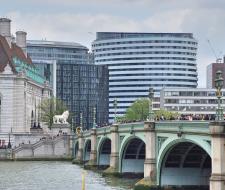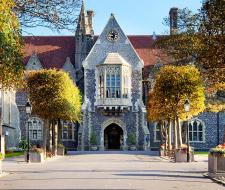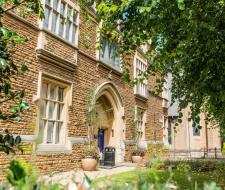Study photography in England UK - 90 institutions
-
 In 2023 100% of students achieved A*– B grades at A-level
In 2023 100% of students achieved A*– B grades at A-level United KingdomLondonCurrently watching: 10from 37600.00 £ / year
United KingdomLondonCurrently watching: 10from 37600.00 £ / year -
 In 2022 - 66% of A Level students achieved A* - A
In 2022 - 66% of A Level students achieved A* - A United KingdomOxfordCurrently watching: 10from 21400.00 £ / term
United KingdomOxfordCurrently watching: 10from 21400.00 £ / term -
 In 2023 an average IB score made up 35
In 2023 an average IB score made up 35 United Kingdomnear LondonCurrently watching: 7from 19170.00 £ / semester
United Kingdomnear LondonCurrently watching: 7from 19170.00 £ / semester -
 75% of our A-Level students achieved A*-A in 2022
75% of our A-Level students achieved A*-A in 2022 United KingdomCanterburyCurrently watching: 10from 11450.00 £ / term
United KingdomCanterburyCurrently watching: 10from 11450.00 £ / term -
 In 2023 - 98% pupils gained places at their first choice University
In 2023 - 98% pupils gained places at their first choice University United KingdomCambridgeCurrently watching: 10from 14320.00 £ / term
United KingdomCambridgeCurrently watching: 10from 14320.00 £ / term -
 In 2023 80% of students achieved A*– B grades at A-level
In 2023 80% of students achieved A*– B grades at A-level United Kingdomnear LondonCurrently watching: 9from 7421.00 £ / term
United Kingdomnear LondonCurrently watching: 9from 7421.00 £ / term -
 In 2023 60% of A Level students achieved A*- B grades
In 2023 60% of A Level students achieved A*- B grades United KingdomBathCurrently watching: 6from 12444.00 £ / term
United KingdomBathCurrently watching: 6from 12444.00 £ / term -
 The highest ranked co-educational school in the United Kingdom in 2021
The highest ranked co-educational school in the United Kingdom in 2021 United KingdomBrightonCurrently watching: 8from 16740.00 £ / term
United KingdomBrightonCurrently watching: 8from 16740.00 £ / term -
 In 2023 - near 66% of A Level students achieved A*- A grades
In 2023 - near 66% of A Level students achieved A*- A grades United KingdomNorthamptonCurrently watching: 9from 9500.00 £ / term
United KingdomNorthamptonCurrently watching: 9from 9500.00 £ / term -
 Average score obtained by students who passed the IB: 37 out of 45
Average score obtained by students who passed the IB: 37 out of 45 United KingdomBristolCurrently watching: 7from 18300.00 £ / term
United KingdomBristolCurrently watching: 7from 18300.00 £ / term
Thanks to high-quality education, the leading universities in Britain are rightfully considered one of the best places to study photography. Studying photography in England will improve technical skills and develop creativity, understanding of society and culture. Students of top photography schools gain valuable experience, make professional connections and enrich their portfolios - all this makes the education of a photographer obtained in the UK very popular.
Alternative destinations
Education in the field of photography in the UK for international students
Studying photography in England opens up great opportunities for students: there are courses of various durations and difficulties with accents in various directions in photography. So, in Britain you can get education in the most popular areas:
- Reportage shooting
- Portrait shooting
- Fashion shooting
- Interior shooting.
Students at the beginning of the path to mastering photography, but intend to devote their entire lives to this field, are sent to receive basic education at leading universities in Britain for undergraduate courses. Such programs are the longest and most reliable: years of study at British universities will not be in vain, and the result will be a prestigious diploma, valuable knowledge and experience. The duration of Bachelor's courses will be 3-4 years, the curriculum includes general disciplines and highly specialized areas. The strength of British undergraduate programs is considered practical focus. Students spend a large number of hours in studios participating in various competitions and projects. In addition, students undergo internships in large companies, where they gain real practical experience and, often, employment. Bachelor's programs will allow you to get a BA in Photography degree and acquire valuable professional qualities:
- Critical and Analytical Thinking
- Creative flair
- An ability to find the best working conditions
- Attention to detail
- Excellent technical skills in photo editing programs, exposure of light and work with equipment.
For example, the prestigious Anglia Ruskin University invites foreign students to a 3-year Bachelor's program in photography, which competently combines theoretical and practical knowledge. The cost of a Bachelor's course will be about 12500 £ per year.
For professional photographers who intend to continue to improve and improve their qualifications, top universities in England have prepared many excellent postgraduate programs. So, 1-2 years, which takes a master's program in Britain, will significantly improve both technical skills and delve into creativity, master a new field or get a narrow specialization. Master's programs are designed to provide students with relevant practical knowledge that would allow them to get a career elevator in the following areas:
- Composition
- Aesthetics
- Technology
- Equipment.
In addition, masters are taught to be effective, to have flexibility of thinking and developed communication skills - those qualities that will make them competitive in a rapidly changing world. To enter a Master's program students need a Bachelor's degree, work experience of a year and a good portfolio.
You can get a Masters of Arts in Documentary and Photojournalism degree at the University of Westminster, a British university, located in the heart of London. The cost of the programs will be from 10,000 £ per year.
Short university courses are another option of studying abroad, which will significantly save time and money, but will help to gain international experience and master new techniques. A wide variety of programs have been developed for students that are suitable for photographers of different levels of education.
For beginner photographers, Britain has also prepared a lot of interesting things! So for students on the basis of private boarding schools, colleges and universities there is a wide selection of combined programs that will improve not only knowledge of photo art, but also improve language skills.
Speaking about the best educational institutions in Britain, which specialize in studying in the field of art, one cannot but mention the Cambridge School Visual & Performing Arts (CSVPA). Here you will find a wide selection of programs, including summer English courses and an exciting vacation courses. Students of 15-18 years are invited to the summer program of the top college, the cost of training will be from 2350 £ per week.
In addition, high school educational programs with a bias in creativity are popular among foreigners. Within the framework of the British programs, students will be able to obtain high-quality knowledge of photography, master the techniques and skills, as well as receive strong academic training in basic school subjects.
A great example of a private boarding school, which provides an opportunity to receive comprehensive development - King's College. The cost of studying GCSE, A-Level programs will be from 6400 £ per term.
Education in th field of photography in Great Britain - Programs and Tuition Fees
|
Undergraduate |
From 15000 £ / year |
|
Master's degree |
From 16000 £ / year |
|
University preparatory courses |
From 15000 £ / year |
|
Short courses for students |
From £ 400 / week |
|
Academic camp |
From £ 400 / week |
|
Secondary school |
From 25,000 £ / year |
Basic academic and language requirements in points
|
Not less than 34 |
|
|
ABB |
|
|
More than 6.5 |
Best universities in Britain to study photography according to the University ranking 2019
- Coventry
- Leeds
- Middlesex
- UWE Bristol
- Edinburgh napier
- Sunderland
- Liverpool john moores
- Nottingham trent
- Gloucestershire
- Suffolk
- Ulster
- Glasgow
- Arts Uni Bournemouth
- Nottingham
- Westminster
- Royal holloway
- Staffordshire
- Hertfordshire
- Edinburgh
- Roehampton
Best communication and media universities in Britain 2026 | Complete University Guide
|
Rank |
Institution |
|---|---|
| 1 | Loughborough |
| 2 | Lancaster |
| 3 | Warwick |
| 4 | Strathclyde |
| 5 | Sheffield |
| 6 | Birmingham |
| 7 | Leeds |
| 8 | Newcastle |
| 9 | King's College London |
| 10 | Cardiff |
| 11 | Southampton |
| 12 | Leicester |
| 13 | St Andrews |
| 14 | Surrey |
| 15 | Royal Holloway, University of London |
| 16 | City, University of London |
| 17 | Sussex |
| 18 | Stirling |
| 19 | Liverpool |
| 20 | Swansea |
| 21 | Keele |
| 22 | Glasgow Caledonian |
| 23 | West London |
| 24 | Queen Mary, University of London |
| 25 | Northumbria |
| 26 | Bournemouth |
| 27 | Nottingham |
| 28 | Kingston |
| 29 | Salford |
| 30 | Coventry |
| 31 | York |
| 32 | University of the Arts, London |
| 33 | Lincoln |
| 34 | Edinburgh Napier |
| 35 | Kent |
| 36 | East Anglia (UEA) |
| 37 | Leeds Beckett |
| 38 | Birmingham City |
| 39 | East London |
| 40 | Ulster |
| 41 | Nottingham Trent |
| 42 | Leeds Trinity |
| 43 | Westminster |
| 44 | Bath Spa |
| 45 | Teesside |
| 46 | Roehampton |
| 47 | Gloucestershire |
| 48 | Portsmouth |
| 49 | Manchester Metropolitan |
| 50 | Goldsmiths, University of London |
